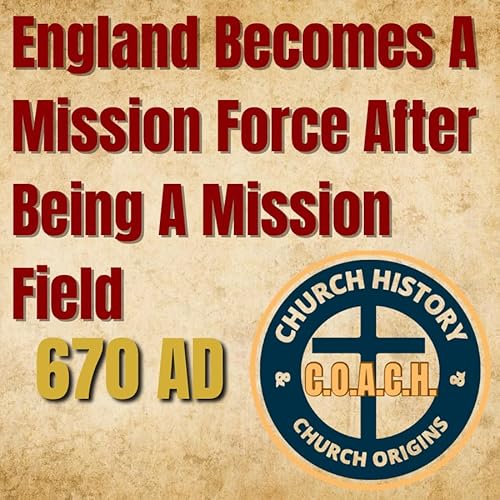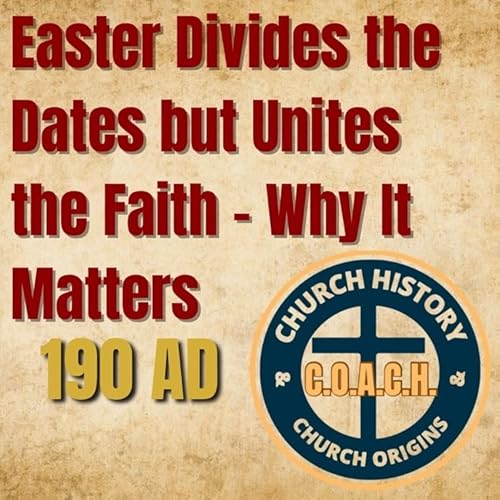
COACH: Church Origins and Church History courtesy of the That’s Jesus Channel
Failed to add items
Sorry, we are unable to add the item because your shopping cart is already at capacity.
Add to basket failed.
Please try again later
Add to Wish List failed.
Please try again later
Remove from Wish List failed.
Please try again later
Follow podcast failed
Unfollow podcast failed
-
Narrated by:
About this listen
COACH: Church Origins and Church History is a Christian podcast from Bob Baulch that explores how the church grew, suffered, worshiped, and changed the world — one generation at a time. Hosted by a passionate Bible teacher with a heart for truth and revival and research, COACH brings history to life with verifiable sources, captivating stories, and deep theological reflection. From Roman persecution to forgotten revivals, every episode is a fresh look at how God’s people lived and died for the gospel — and what it means for us today. No fluff. No fiction. Just powerful, proven history that strengthens your faith.
Copyright 2025 All rights reserved.
Episodes
-
 15 mins
15 minsFailed to add items
Sorry, we are unable to add the item because your shopping cart is already at capacity.Add to basket failed.
Please try again laterAdd to Wish List failed.
Please try again laterRemove from Wish List failed.
Please try again laterFollow podcast failed
Unfollow podcast failed
-
 Oct 6 202517 mins
Oct 6 202517 minsFailed to add items
Sorry, we are unable to add the item because your shopping cart is already at capacity.Add to basket failed.
Please try again laterAdd to Wish List failed.
Please try again laterRemove from Wish List failed.
Please try again laterFollow podcast failed
Unfollow podcast failed
-
 21 mins
21 minsFailed to add items
Sorry, we are unable to add the item because your shopping cart is already at capacity.Add to basket failed.
Please try again laterAdd to Wish List failed.
Please try again laterRemove from Wish List failed.
Please try again laterFollow podcast failed
Unfollow podcast failed
No reviews yet
In the spirit of reconciliation, Audible acknowledges the Traditional Custodians of country throughout Australia and their connections to land, sea and community. We pay our respect to their elders past and present and extend that respect to all Aboriginal and Torres Strait Islander peoples today.



